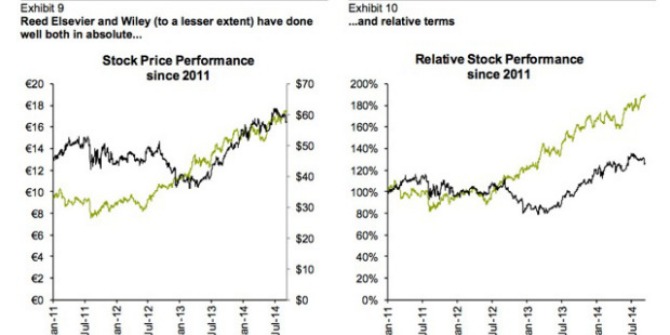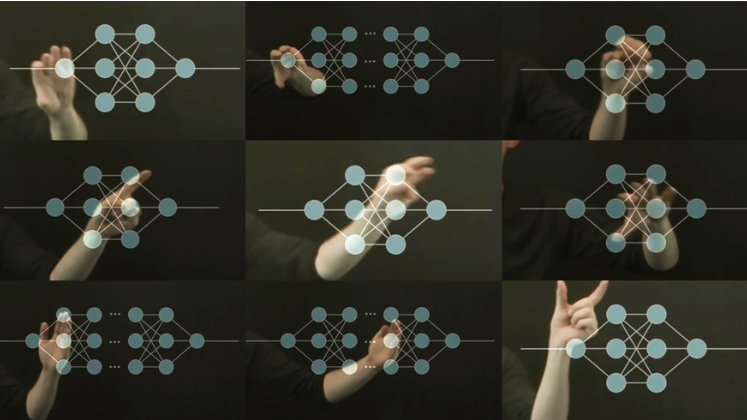 To ensure the Impact Blog continues to grow in productive directions, a new Advisory Board has been established to help guide the blog as we seek to build an inclusive community around the impact of academic work. Sierra Williams announces the LSE Impact Blog Advisory Board, an esteemed selection of members from across the scholarly community.
To ensure the Impact Blog continues to grow in productive directions, a new Advisory Board has been established to help guide the blog as we seek to build an inclusive community around the impact of academic work. Sierra Williams announces the LSE Impact Blog Advisory Board, an esteemed selection of members from across the scholarly community.
The LSE Impact Blog is a continually evolving platform. Four years ago we started the blog as an output of a three-year research project and since then, the platform has grown considerably to become the academic-centered media platform that it is today. From the outset of the project, the research team wanted to cultivate a network of related findings and topics for discussion. Today’s landscape of scholarly communication is rapidly changing, and it is imperative that the blog and its wider network remains responsive to this.
As the blog has evolved, the team has sought to put in place mechanisms that ensure its continued relevance and success. Funding has always been a tricky issue (for more on this, see my piece on university-supported blogging infrastructure), and as we continue to take steps to stabilise the blog’s long-term future, a stable governance structure is essential. Last year the LSE Impact Blog moved from an academic department the Public Policy Group to the central LSE Communications Division. To ensure academic independence, content quality and rigour remain primary drivers of the blog following this transition, we were encouraged to form an advisory board that broadly reflected the makeup of our audience as we continue to build an inclusive community around the impact of academic work.
 Image credit: governance structure (pixabay public domain)
Image credit: governance structure (pixabay public domain)
A pool of key influencers from within the LSE and external to the LSE were approached to join and we are excited to announce the confirmed Advisory Board includes an esteemed selection of members from across the scholarly community. We have placed significance on ensuring Board members represent a range of disciplines, sectors, and backgrounds as the Blog is committed to featuring multiple perspectives on the impact of academic research. The Board includes academic representatives (for example, Professor Deborah Lupton, a long-standing Impact Blog contributor and digital sociologist and Professor Alison Powell, who has recently launched the LSE Data and Society programme), voices from publishing (Ziyad Marar from the publisher SAGE), and a range of colleagues working on the forefront of openness, digital engagement, and evidence-based policy. We are incredibly excited to draw from the range of expertise available from the Board and are looking forward to connecting our readers to the work done by these influential leaders. You can read more about the Board on our new and improved About page.
[separator top=”40″ style=”none”] [title size=”2″]Introducing the LSE Impact Blog Advisory Board[/title]
[one_half last=”no”]
 Rachael Cayley – University of Toronto
Rachael Cayley – University of Toronto
Rachael Cayley is an associate professor (teaching stream) in the Office of English Language and Writing Support at the School of Graduate Studies, University of Toronto. She teaches academic writing and speaking to graduate students. Before joining the University of Toronto, she worked as an editor at Oxford University Press in Toronto. She has a PhD in philosophy from the New School for Social Research and a BA in political science from the University of British Columbia. Rachael has a blog on academic writing for graduate students, Explorations of Style. You can also follow Rachael on Twitter @explorstyle.
[/one_half]
[one_half last=”yes”]
 Stephen Curry – Imperial College London
Stephen Curry – Imperial College London
Stephen Curry is a Professor of Structural Biology in the Department of Life Sciences at Imperial College. He researches the molecular basis of replication of RNA viruses such as foot-and-mouth disease virus and noroviruses. Stephen also writes regularly about science and the scientific life on his Reciprocal Space blog and at the Guardian. An active campaigner, Stephen is a founder member of Science is Vital and on the board of the Campaign for Science and Engineering.
[/one_half]
[one_half last=”no”]
 Laura Czerniewicz – University of Cape Town
Laura Czerniewicz – University of Cape Town
Laura Czerniewicz is an Associate Professor at the Centre for Higher Education Development at the University of Cape Town, and director of the Centre for Innovation in Learning and Teaching. She lead the university’s open scholarship initiative , blogs here and can be followed on Twitter as @czernie
[/one_half]
[one_half last=”yes”]
 Patrick Dunleavy (Chair) – LSE
Patrick Dunleavy (Chair) – LSE
Patrick Dunleavy is Professor of Political Science and Public Policy at the London School of Economics and Political Science, where he has worked since 1979. He has authored and edited numerous books on political science theory, British politics and urban politics, as well as more than 50 articles in professional journals. He is Chair of the PPG.
[/one_half]
[one_half last=”no”]
 Nancy Graham – LSE
Nancy Graham – LSE
Nancy Graham is the Research Support and Academic Liaison Manager @LSELibrary. She manages the Research Support Services team in the Library, which facilitates the open dissemination of all LSE research outputs. In the past she has also worked on several inter-institutional projects on the use of open educational resources and has presented at numerous national and international conferences including at UNESCO.
[/one_half]
[one_half last=”yes”]
 Jonathan Gray – Open Knowledge International and University of Amsterdam
Jonathan Gray – Open Knowledge International and University of Amsterdam
Jonathan Gray is Director of Policy and Research at Open Knowledge. He has co-founded numerous open knowledge projects including the Data Journalism Handbook, Europe’s Energy, The Public Domain Review, OpenGLAM, OpenSpending and Where Does My Money Go?. He is also Researcher at the University of Amsterdam, Research Fellow at the Tow Center for Digital Journalism, Columbia University and a regular contributor to The Guardian and Open Democracy. More about him can be found at jonathangray.org and he is on Twitter at @jwyg.
[/one_half]
[one_half last=”no”]
 Duncan Green – Oxfam GB and LSE
Duncan Green – Oxfam GB and LSE
Duncan Green is Senior Strategic Adviser for Oxfam GB and Professor in Practice in the department for International Development at LSE. He runs the From Poverty to Power blog and is author of the book ‘How Change Happens (OUP, October 2016). He can be found on twitter @fp2p.
[/one_half]
[one_half last=”yes”]
 Steven Hill – HEFCE
Steven Hill – HEFCE
Steven Hill is Head of Research Policy at the Higher Education Funding Council for England. Prior to joining HEFCE Steven was Head of the Strategy Unit at Research Councils UK, covering a range of research policy issues, and had several roles in the Department for Environment, Food and Rural Affairs, working on evidence-based policy making. Earlier in his career Steven was a university lecturer at the University of Oxford where his research focussed on plant physiology and biotechnology.
[/one_half]
[one_half last=”no”]
 Deborah Lupton – University of Canberra
Deborah Lupton – University of Canberra
Deborah Lupton is Centenary Research Professor at University of Canberra. She blogs at This Sociological Life and tweets @DALupton. Her latest books are Digital Sociology (2015, Routledge) and The Quantified Self: A Sociology of Self-Tracking (2016, Polity).
[/one_half]
[one_half last=”yes”]
 Ziyad Marar – SAGE Publications
Ziyad Marar – SAGE Publications
Ziyad Marar is Global Publishing Director of SAGE. Having joined the company in 1989, Ziyad has worked across all aspects of publishing. He was appointed Editorial Director in 1997, Deputy Managing Director in 2006, and took on his current global role in 2010, in which he has responsibility for the overall strategic direction of SAGE’s publishing. Ziyad is also the author of three books combining his interests in psychology and philosophy, The Happiness Paradox (Reaction, 2003), Deception (Routledge, 2008) and most recently Intimacy: Understanding the Subtle Power of Human Connection (Routledge, 2012). He can be found on Twitter @ziyadmarar.
[/one_half]
[one_half last=”no”]
 Rachel Middlemass – LSE
Rachel Middlemass – LSE
Rachel Middlemass is the Research Impact Manager at LSE, where she provides strategic central support for academics seeking to identify, maximise and record the impacts of their research. Prior to joining the School in September 2014 she was Head of Research Impact Curation at UCL, where she oversaw the development of almost 300 impact case studies submitted to the REF. She has a PhD in Medieval History, awarded for a thesis exploring the relationships between male bodies and masculine identities in medieval England and France.
[/one_half]
[one_half last=”yes”]
 Cameron Neylon – Curtin University
Cameron Neylon – Curtin University
Cameron Neylon is Professor of Research Communications at the Centre for Culture and Technology at Curtin University. He has previously worked for PLOS, the Open Access publisher and at the Science and Technology Facilitites Council UK. He is interested in how to make the internet more effective as a tool for scholarship. He writes and speaks regularly on scholarly communication, the design of web based tools for research, and the need for policy and cultural change within and around the research community.
[/one_half]
[one_half last=”no”]
 Alison Powell – LSE
Alison Powell – LSE
Alison Powell is an Assistant Professor and Programme Director of the MSc in Media and Communication (Data & Society). I research how people’s values influence the way technology is built, and how technological systems in turn change the way we work and live together.
[/one_half]
[one_half last=”yes”]
 Jane Secker – LSE
Jane Secker – LSE
Dr Jane Secker is the Copyright and Digital Literacy Advisor at London School of Economics and Political Science where she coordinates digital literacy programmes for staff and students including copyright training and advice. She is Chair of the CILIP Information Literacy Group, a member of the Libraries and Archives Copyright Alliance and the Universities UK Copyright Working Group, which negotiates licences for the higher education sector. She is widely published and author of four books, including Copyright and E-learning: a guide for practitioners, which was published in 2010 by Facet. The second edition (authored with Chris Morrison) is due for publication in June 2016.
[/one_half]
[one_half last=”no”]
 Jane Tinkler – Nine Dots Prize
Jane Tinkler – Nine Dots Prize
Jane Tinkler is currently Senior Prize Manager for the Nine Dots Prize, a major new initiative for the social sciences. It aims to stimulate research into vital but under-examined questions with a relevance to today’s world. It will launch in October 2016. She recently spent a year seconded to the UK Parliamentary Office of Science and Technology (POST) as Senior Adviser in social science. She has been a social science researcher for nearly ten years working on applied projects with government, civil society and academic partners. Prior to joining POST, she was based in the Public Policy Group at the London School of Economics where most recently she worked on the impact of academic research in the social sciences. Her recent publications include: (with Simon Bastow and Patrick Dunleavy) (2014) The Impact of the Social Sciences: How academics and their work makes a difference.
[/one_half]
[one_half last=”yes”]
 Martin Weller – Open University
Martin Weller – Open University
Martin Weller is Professor of Educational Technology at the Open University. He chaired the OU’s first major online course, with over 15,000 students annually, and was also the VLE project director. His interests are in the impact of new technologies, open education and learning environments. He has recently authored the book The Battle for Open, which is published by Ubiquity Press and available as open access. He blogs at edtechie.net.
[/one_half]
[one_half last=”no”]
We would like to take this opportunity to thank our Advisory Board and are looking forward to their input on the following thematic directions:
- REF2020
- Future of Scholarship (humanities and social science innovation, peer review, web-based scholarly communication)
- Data and Society (LSE-driven, but linking in to wider conversations)
- Tips and Tools Resources for Digital Scholars
- Research Methods in the Digital Age
- Learning analytics and metrics (TEF in particular and HE approach to quantitative metrics and qualitative metrics in general) – exploring links between teaching and research
The LSE Impact blog is based in the central LSE Communications team. The blog team gratefully acknowledge the financial support of the HEIF5 programme run by LSE Knowledge Exchange.









2 Comments